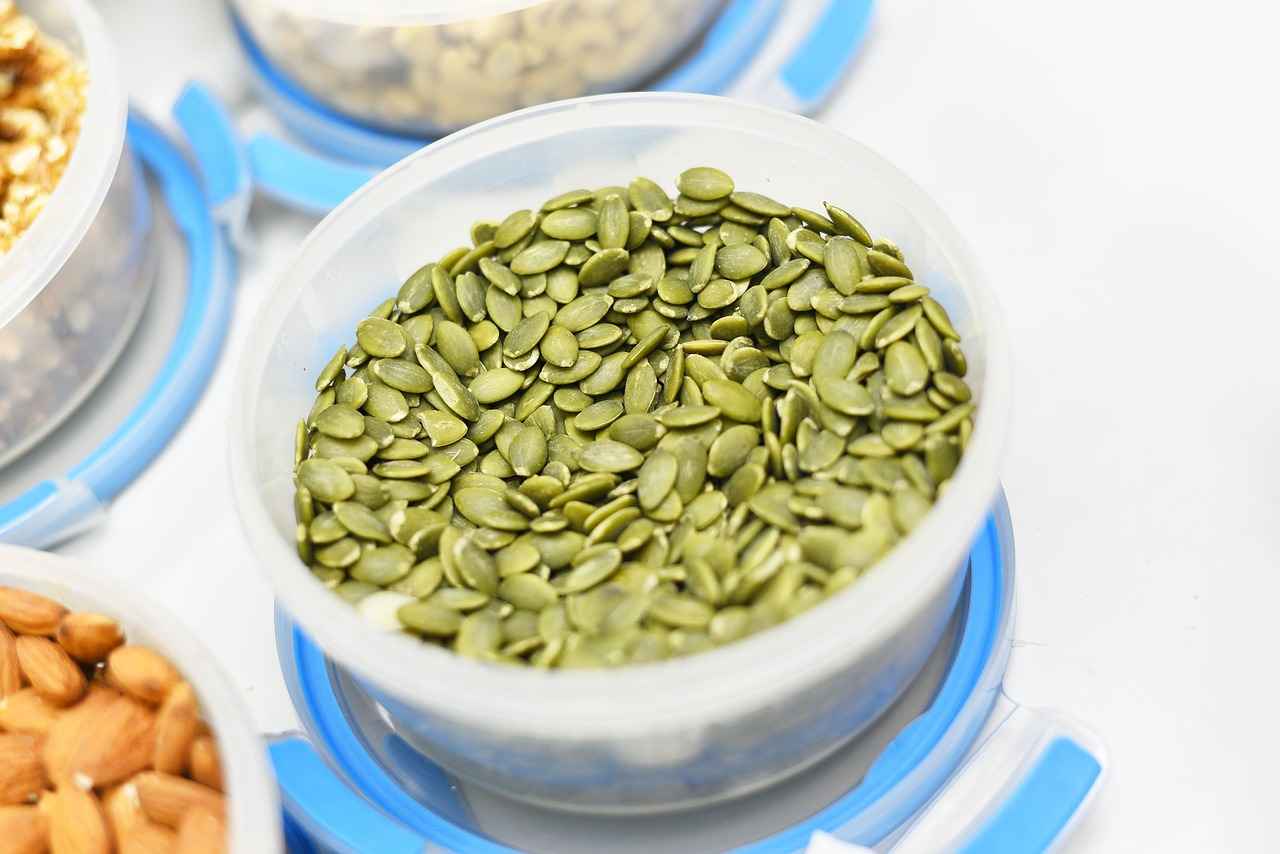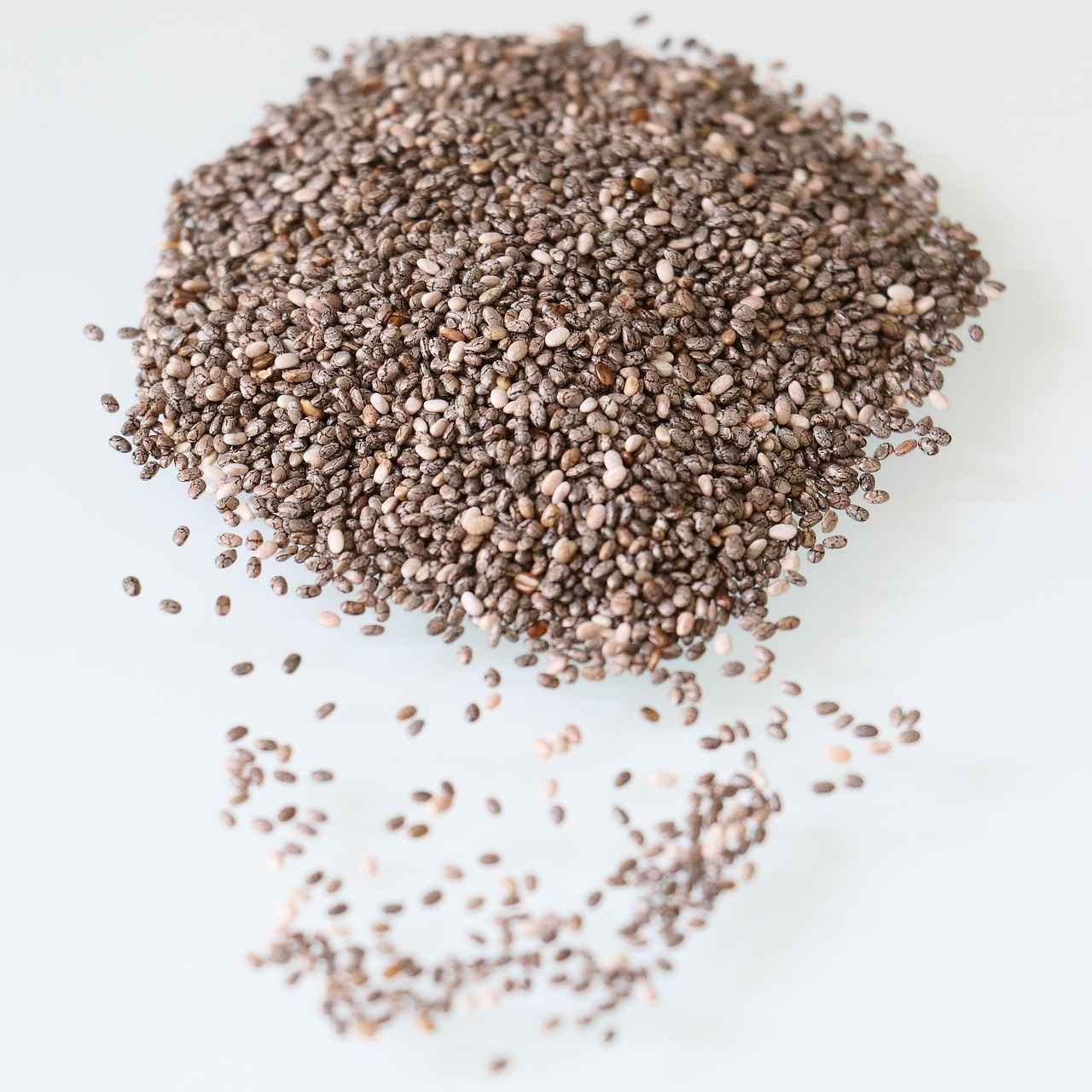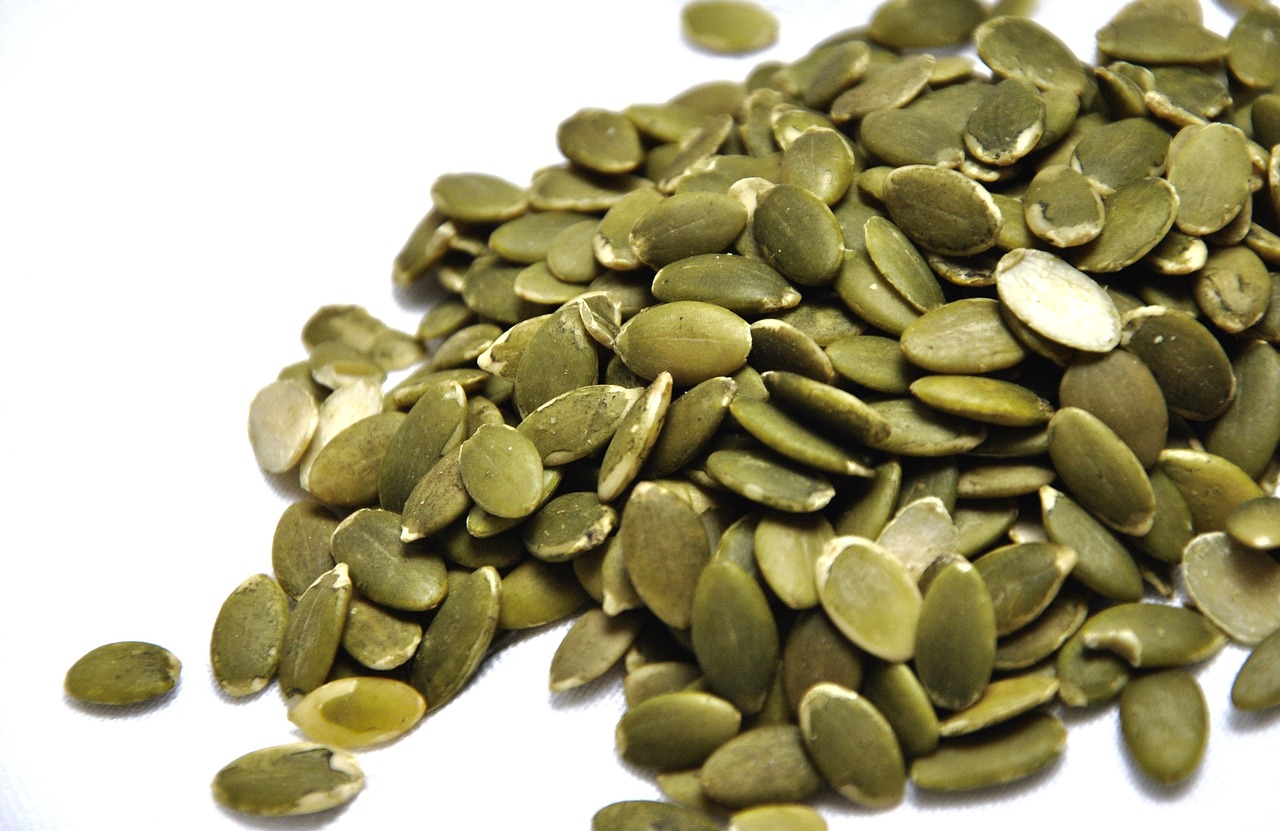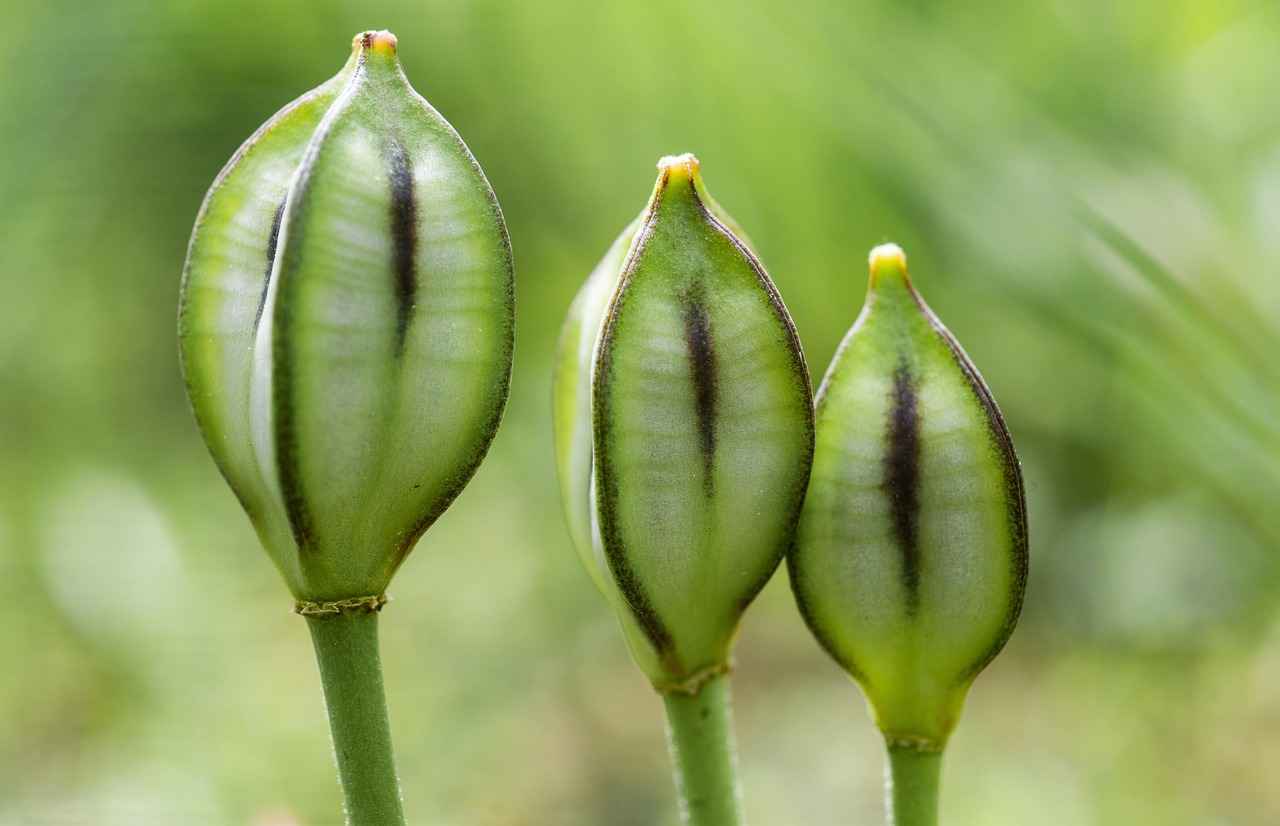This article delves into the myriad health benefits of chia seeds, emphasizing their nutritional value, potential health impacts, and practical ways to incorporate them into your diet. Chia seeds, derived from the Salvia hispanica plant, are a powerhouse of nutrients that have gained popularity for their impressive health benefits.
What Nutrients Are Found in Chia Seeds?
Chia seeds are incredibly nutrient-dense. They are an excellent source of omega-3 fatty acids, dietary fiber, protein, and essential vitamins and minerals such as calcium, magnesium, and phosphorus. A mere two tablespoons of chia seeds contain:
| Nutrient | Amount |
|---|---|
| Omega-3 Fatty Acids | 5 grams |
| Fiber | 11 grams |
| Protein | 4 grams |
| Calcium | 18% of the RDI |
How Do Chia Seeds Aid in Weight Loss?
Many individuals incorporate chia seeds into their diets as a weight loss aid. The high fiber content promotes feelings of fullness, which may lead to reduced calorie intake. When chia seeds absorb water, they expand in the stomach, creating a gel-like substance that enhances satiety.
Can Chia Seeds Help Regulate Blood Sugar Levels?
Yes, chia seeds can play a role in stabilizing blood sugar levels. Their soluble fiber content slows down carbohydrate absorption, which helps prevent spikes in blood sugar after meals. This makes them a great option for individuals managing diabetes or those looking to maintain steady energy levels throughout the day.
Are Chia Seeds Beneficial for Digestive Health?
The high fiber content in chia seeds promotes digestive health by preventing constipation and supporting a healthy gut microbiome. Their ability to absorb water aids in softening stool, making it easier to pass.
What Are the Heart Health Benefits of Chia Seeds?
Chia seeds are renowned for their heart health benefits. The omega-3 fatty acids, fiber, and antioxidants found in chia seeds contribute to lower cholesterol levels and improved cardiovascular health. Regular consumption may reduce the risk of heart disease.
How Can You Incorporate Chia Seeds into Your Diet?
Incorporating chia seeds into your diet is simple and versatile. Here are some practical ways to enjoy them:
- Add them to smoothies for a nutritional boost.
- Mix them into oatmeal or yogurt.
- Use them in baking recipes, such as muffins or bread.
- Create chia seed pudding by soaking them in milk or plant-based alternatives.
What Are Some Simple Recipes Using Chia Seeds?
Chia seed pudding is a popular recipe that’s easy to make. Combine chia seeds with almond milk, sweeten with honey, and let it sit overnight. In the morning, top it with fruits and nuts for a delicious breakfast.
Are There Any Potential Side Effects of Chia Seeds?
While chia seeds are generally safe for most people, they can cause digestive discomfort in some individuals if consumed in large quantities. It’s essential to start with small amounts and increase gradually while maintaining proper hydration.
Who Should Avoid Chia Seeds?
People with specific digestive issues or allergies should consult a healthcare professional before adding chia seeds to their diet. This precaution helps avoid any adverse effects.

What Nutrients Are Found in Chia Seeds?
Chia seeds have gained immense popularity in recent years due to their impressive nutritional profile. These tiny seeds, derived from the Salvia hispanica plant, are not only versatile but also packed with a multitude of essential nutrients that can enhance your overall health. In this section, we will delve deeper into the specific nutrients found in chia seeds and their associated health benefits.
Chia seeds are a powerhouse of nutrition, providing a rich source of omega-3 fatty acids, fiber, protein, and a variety of vitamins and minerals. Below is a breakdown of these vital nutrients:
| Nutrient | Amount per 1 oz (28g) | Health Benefits |
|---|---|---|
| Omega-3 Fatty Acids | 5,000 mg | Supports heart health, reduces inflammation, and may improve brain function. |
| Fiber | 11 g | Promotes digestive health, aids in weight management, and helps regulate blood sugar levels. |
| Protein | 4 g | Essential for muscle repair, growth, and overall body function. |
| Calcium | 177 mg | Important for bone health and muscle function. |
| Magnesium | 95 mg | Supports muscle and nerve function, and energy production. |
| Iron | 1 mg | Essential for blood production and transporting oxygen in the body. |
In addition to these nutrients, chia seeds are also rich in antioxidants, which help combat oxidative stress and may reduce the risk of chronic diseases. The unique combination of these nutrients makes chia seeds a valuable addition to any diet.
The diverse array of nutrients in chia seeds contributes to various aspects of health:
- Heart Health: The omega-3 fatty acids in chia seeds can help lower cholesterol levels and reduce the risk of heart disease.
- Digestive Health: High fiber content promotes regular bowel movements and supports gut health.
- Weight Management: The soluble fiber in chia seeds expands in the stomach, promoting feelings of fullness and helping to control appetite.
- Bone Health: Nutrients like calcium, magnesium, and phosphorus support strong bones and teeth.
Incorporating chia seeds into your daily routine is simple. They can be added to smoothies, yogurt, oatmeal, and baked goods, or even used as an egg substitute in vegan recipes. The seeds can be consumed whole or ground, and soaking them in water or milk can enhance their digestibility and nutrient absorption.
In summary, chia seeds are a nutrient-dense food that offers numerous health benefits. Their rich profile of omega-3 fatty acids, fiber, protein, and essential vitamins and minerals makes them an excellent choice for anyone looking to improve their diet and overall health.

How Do Chia Seeds Aid in Weight Loss?
Chia seeds have gained immense popularity in recent years, particularly among those seeking to manage their weight. These tiny seeds are not only a nutritional powerhouse but also offer several benefits that can assist in weight loss efforts. In this section, we will delve into how chia seeds can aid in weight loss and the mechanisms behind their effectiveness.
Many people incorporate chia seeds into their diets as a weight loss aid. Their remarkable high fiber content plays a significant role in promoting feelings of fullness, which can help reduce overall calorie intake. This makes chia seeds a valuable addition to any weight management plan.
The secret to chia seeds’ effectiveness lies in their unique soluble fiber content. When chia seeds come into contact with water, they absorb up to 12 times their weight, forming a gel-like substance. This expansion in the stomach can create a sensation of fullness, leading to decreased hunger and reduced cravings between meals.
A single ounce (about two tablespoons) of chia seeds contains approximately 11 grams of fiber, which is roughly 30% of the recommended daily intake for adults. This significant amount of fiber contributes to the seeds’ ability to enhance satiety and regulate appetite, making them an excellent choice for those looking to lose weight.
Yes, chia seeds may also play a role in stabilizing blood sugar levels. Their high fiber content slows down carbohydrate absorption, which can prevent spikes in blood sugar after meals. By maintaining more stable blood sugar levels, individuals may experience fewer cravings and better control over their appetite.
In addition to aiding in weight loss, chia seeds are beneficial for digestive health. The fiber in chia seeds promotes regular bowel movements and can help prevent constipation. A healthy digestive system is crucial for effective weight management, as it ensures that nutrients are properly absorbed and waste is efficiently eliminated.
Incorporating chia seeds into your daily routine is simple and versatile. Here are some practical ways to add them to your meals:
- Add chia seeds to your smoothies for a nutritional boost.
- Mix them into oatmeal or yogurt for added texture and fiber.
- Use chia seeds as an ingredient in baked goods like muffins or bread.
- Create a chia seed pudding by soaking them in milk or a dairy-free alternative overnight.
To maximize the benefits of chia seeds, it is recommended to start with small amounts, such as one tablespoon per day, and gradually increase your intake as your body adjusts. It’s also important to drink plenty of water, as the seeds will absorb liquid and expand in your stomach.
In conclusion, chia seeds are a remarkable addition to any weight loss strategy. Their high fiber content, ability to regulate blood sugar levels, and support for digestive health make them an excellent choice for those looking to manage their weight effectively. By incorporating chia seeds into your diet, you can enjoy their numerous benefits while working towards your weight management goals.
What Role Does Fiber Play in Satiety?
Fiber plays a significant role in maintaining a healthy digestive system and promoting overall wellness. It is a type of carbohydrate that the body cannot digest, which means it passes through the digestive tract relatively intact. This unique property is what makes fiber essential for satiety—the feeling of fullness after eating. When it comes to weight management, understanding how fiber contributes to satiety can be beneficial for those looking to control their appetite and reduce caloric intake.
One of the most remarkable features of fiber is its ability to absorb water. When fiber-rich foods, such as chia seeds, are consumed, they can swell in the stomach, creating a gel-like substance. This expansion increases the volume of food in the stomach, which sends signals to the brain that you are full. As a result, incorporating fiber into your meals can help you feel satisfied for longer periods, reducing the temptation to snack between meals.
Chia seeds, in particular, are an excellent source of soluble fiber. A single ounce of these tiny seeds contains around 11 grams of fiber, which is about 30% of the recommended daily intake for adults. This high fiber content not only aids in digestion but also enhances feelings of fullness. Studies have shown that individuals who consume meals rich in fiber tend to eat fewer calories overall, which can be a vital strategy for weight loss.
Moreover, fiber has a profound impact on the digestive process. It helps regulate bowel movements, preventing constipation and promoting a healthy gut microbiome. A healthy gut is crucial for overall health, as it influences everything from nutrient absorption to immune function. By including fiber-rich foods like chia seeds in your diet, you can support your digestive health while also enhancing your satiety.
In addition to aiding in weight management and digestion, fiber can also play a role in regulating blood sugar levels. High-fiber foods slow the absorption of sugar, which helps prevent spikes in blood glucose after meals. This is particularly beneficial for individuals managing diabetes or those at risk of developing the condition.
To maximize the benefits of fiber, it’s essential to incorporate a variety of fiber-rich foods into your daily diet. Chia seeds can be easily added to smoothies, yogurt, or oatmeal, making them a convenient option for boosting your fiber intake. Another effective method is to prepare chia seed pudding by soaking the seeds in liquid overnight, allowing them to absorb the moisture and expand. This not only creates a delicious, satisfying treat but also ensures you’re getting the fiber your body needs.
While fiber is beneficial, it is important to consume it in moderation and ensure adequate hydration. Increasing fiber intake too quickly can lead to digestive discomfort, including bloating and gas. Therefore, it’s advisable to gradually introduce fiber-rich foods into your diet while drinking plenty of water.
In summary, fiber is a crucial component of a healthy diet, significantly contributing to satiety and digestive health. By incorporating foods like chia seeds, you can enhance your overall well-being while effectively managing your appetite. Remember, a balanced approach to fiber intake, combined with hydration, can lead to lasting health benefits.
How Much Fiber Is in Chia Seeds?
Chia seeds have gained significant popularity in recent years due to their impressive nutritional profile and health benefits. One of the most notable attributes of these tiny seeds is their high fiber content. In this section, we will explore the fiber content of chia seeds, its importance in a healthy diet, and how it can support weight loss and overall well-being.
A single ounce of chia seeds contains approximately 11 grams of fiber, which accounts for about 30% of the recommended daily intake for adults. This makes chia seeds an excellent addition to any weight-loss diet or health-conscious eating plan. The fiber in chia seeds is primarily soluble fiber, which has several beneficial effects on the body.
Fiber plays a crucial role in weight management for several reasons:
- Promotes Satiety: The soluble fiber in chia seeds absorbs water and expands in the stomach, leading to increased feelings of fullness. This can help curb hunger and reduce overall calorie intake.
- Slows Digestion: Fiber slows down the digestion and absorption of carbohydrates, helping to stabilize blood sugar levels and prevent spikes that can lead to cravings.
- Supports Digestive Health: A high-fiber diet is essential for maintaining a healthy digestive system. Chia seeds can help prevent constipation and promote regular bowel movements.
Incorporating chia seeds into your meals is simple and versatile. Here are some practical ways to add them to your diet:
- Chia Seed Pudding: Mix chia seeds with your choice of milk or yogurt and let them soak overnight. Add fruits and nuts for a nutritious breakfast or snack.
- Smoothies: Add a tablespoon of chia seeds to your favorite smoothie for an extra fiber boost.
- Baking: Incorporate chia seeds into baked goods like muffins, bread, or energy bars for added nutrition.
While chia seeds are generally safe for most people, it’s essential to consume them in moderation. Some individuals may experience digestive discomfort, especially if they are not used to a high-fiber diet. It’s advisable to increase your fiber intake gradually and drink plenty of water to aid digestion.
People with certain digestive disorders or those who are allergic to chia seeds should consult a healthcare professional before adding them to their diet. Always listen to your body and adjust your intake accordingly.
In conclusion, chia seeds are a nutrient-dense food that can significantly contribute to a healthy diet, particularly due to their high fiber content. With various ways to incorporate them into your meals, they can be a valuable addition to your weight-loss journey and overall health.
Can Chia Seeds Help Regulate Blood Sugar Levels?
Chia seeds have gained popularity in recent years, not only for their nutritional benefits but also for their potential role in regulating blood sugar levels. This is particularly significant for individuals managing diabetes or those concerned about their blood sugar spikes after meals.
One of the primary reasons chia seeds may aid in blood sugar regulation is their high fiber content. A single ounce of chia seeds contains about 11 grams of fiber, which is approximately 30% of the recommended daily intake for adults. This fiber is primarily soluble, meaning it dissolves in water and forms a gel-like substance in the stomach. This gel slows down the absorption of carbohydrates, leading to a more gradual release of glucose into the bloodstream.
When carbohydrates are absorbed slowly, it helps prevent the sharp spikes in blood sugar that can occur after consuming high-carb meals. This is particularly beneficial for individuals with insulin sensitivity or those at risk of developing type 2 diabetes. Studies have shown that incorporating chia seeds into meals can lead to lower post-meal blood sugar levels, making them a smart addition to a balanced diet.
Moreover, chia seeds are rich in omega-3 fatty acids, which have been linked to improved insulin sensitivity. Improved insulin sensitivity means that the body can use insulin more effectively, helping to keep blood sugar levels stable. The combination of both fiber and omega-3s in chia seeds creates a powerful duo that supports metabolic health.
In addition to their fiber and omega-3 content, chia seeds are also a source of antioxidants and essential minerals such as magnesium and zinc, which play a role in blood sugar regulation. Magnesium, in particular, has been shown to improve insulin sensitivity and glucose metabolism, further enhancing the blood sugar-stabilizing effects of chia seeds.
To incorporate chia seeds into your diet, consider adding them to smoothies, yogurt, or oatmeal. They can also be used as a thickening agent in soups and sauces or mixed into baked goods. For those looking to maximize their benefits, soaking chia seeds in water or milk before consumption can enhance their digestibility and nutrient absorption.
While chia seeds offer numerous health benefits, it is essential to consume them in moderation. Overconsumption may lead to digestive discomfort due to their high fiber content. It is advisable to start with a small amount and gradually increase your intake while ensuring adequate hydration.
In summary, chia seeds can indeed help regulate blood sugar levels due to their high fiber content, omega-3 fatty acids, and essential nutrients. Incorporating these tiny seeds into your diet may provide a simple yet effective way to support your overall metabolic health.
Are Chia Seeds Beneficial for Digestive Health?
Chia seeds, often hailed as a superfood, offer a multitude of health benefits, particularly for digestive health. These tiny seeds are not only versatile and easy to incorporate into various dishes but also packed with essential nutrients that promote overall wellness.
Chia seeds are an excellent source of dietary fiber, containing approximately 11 grams of fiber per ounce. This high fiber content plays a crucial role in maintaining a healthy digestive system. Fiber is essential for bowel regularity and helps prevent constipation by adding bulk to the stool, making it easier to pass.
Chia seeds are rich in soluble fiber, which absorbs water and forms a gel-like substance in the stomach. This gel not only aids in digestion but also helps to slow down the absorption of sugar, which can be beneficial for those managing blood sugar levels. The soluble fiber in chia seeds contributes to a feeling of fullness, which can help curb overeating.
Research indicates that a healthy gut microbiome is vital for overall health, and chia seeds can play a role in this. The fiber in chia seeds acts as a prebiotic, providing nourishment for beneficial gut bacteria. A diverse and balanced gut microbiome is linked to improved digestion, enhanced immune function, and even better mental health.
Incorporating chia seeds into your diet can help prevent various digestive issues, including constipation and bloating. The high fiber content encourages regular bowel movements and promotes digestive health. Additionally, the gel-like consistency formed when chia seeds are soaked can soothe the digestive tract, reducing irritation and discomfort.
- Soaked Chia Seeds: Soaking chia seeds in water or milk overnight creates a pudding-like texture that can be enjoyed as a snack or breakfast.
- Chia Seed Smoothies: Add a tablespoon of chia seeds to your favorite smoothie for an extra fiber boost.
- Baked Goods: Incorporate chia seeds into muffins, bread, or pancakes for added nutrition.
- Salads and Dressings: Sprinkle chia seeds on salads or mix them into salad dressings for a crunchy texture.
For optimal digestive health, it is recommended to start with a small amount, such as one tablespoon of chia seeds per day, and gradually increase to 2-3 tablespoons as your body adjusts. Remember to drink plenty of water, as fiber absorbs liquid and can lead to digestive discomfort if not adequately hydrated.
While chia seeds are generally safe for most people, some may experience digestive discomfort if consumed in excess. It is essential to listen to your body and adjust your intake accordingly. Individuals with specific digestive conditions should consult a healthcare professional before adding chia seeds to their diet.
In summary, chia seeds are a powerful ally for digestive health. Their high fiber content, ability to support a healthy gut microbiome, and versatility in the kitchen make them an excellent choice for anyone looking to improve their digestive wellness.

What Are the Heart Health Benefits of Chia Seeds?
Chia seeds have garnered significant attention for their potential health benefits, particularly regarding heart health. These tiny seeds are packed with essential nutrients that can contribute to a healthy cardiovascular system. In this section, we will explore the various ways chia seeds support heart health, focusing on their omega-3 fatty acids, fiber, and antioxidant properties.
One of the standout features of chia seeds is their high content of omega-3 fatty acids, specifically alpha-linolenic acid (ALA). Omega-3 fatty acids are known for their ability to reduce inflammation and lower blood pressure. Regular consumption of these healthy fats can lead to a decreased risk of heart disease. Studies have shown that diets rich in omega-3s can help lower triglyceride levels and improve overall heart function.
Chia seeds may also play a crucial role in managing cholesterol levels. Research indicates that these seeds can help lower LDL (bad) cholesterol and increase HDL (good) cholesterol. This dual action is beneficial for maintaining a healthy lipid profile, which is essential for reducing the risk of cardiovascular diseases. By incorporating chia seeds into your diet, you may be taking a proactive step toward better heart health.
The high fiber content in chia seeds is another factor contributing to their heart health benefits. Fiber helps regulate blood sugar levels and supports healthy digestion, which can indirectly influence heart health. A diet rich in fiber has been associated with lower cholesterol levels and improved heart function. Chia seeds contain both soluble and insoluble fiber, making them an excellent choice for promoting cardiovascular wellness.
Chia seeds are also rich in antioxidants, which help combat oxidative stress in the body. Oxidative stress can lead to inflammation and damage to blood vessels, increasing the risk of heart disease. By consuming chia seeds, you can enhance your body’s ability to fight off free radicals, thereby supporting overall cardiovascular health.
Another significant benefit of chia seeds is their potential to help regulate blood pressure. The combination of omega-3 fatty acids, fiber, and potassium in chia seeds can contribute to lower blood pressure levels. This is particularly important for individuals with hypertension or those at risk of developing high blood pressure.
Incorporating chia seeds into your daily routine is simple and versatile. You can add them to smoothies, sprinkle them on salads, or mix them into yogurt. Chia seed pudding is another popular option that not only tastes great but also packs a nutritional punch. By making chia seeds a regular part of your diet, you can harness their heart health benefits while enjoying delicious meals.
For optimal health benefits, a typical serving size of chia seeds is about 1-2 tablespoons per day. This amount provides a significant dose of omega-3 fatty acids, fiber, and antioxidants without overwhelming your diet. It’s essential to drink plenty of water when consuming chia seeds, as they absorb liquid and expand in the stomach.
In summary, chia seeds are a powerhouse of nutrients that can significantly benefit heart health. Their omega-3 fatty acids, fiber, and antioxidants work synergistically to support cardiovascular wellness, making them a valuable addition to any heart-healthy diet.
How Do Omega-3 Fatty Acids Impact Heart Health?
Omega-3 fatty acids play a pivotal role in maintaining overall heart health. These essential fats, which cannot be produced by the body, must be obtained through diet. Chia seeds, among other sources, are rich in omega-3s, particularly alpha-linolenic acid (ALA). This article delves into the various ways omega-3 fatty acids impact heart health, highlighting their significance for cardiovascular wellness.
- Reducing Inflammation: Omega-3 fatty acids have anti-inflammatory properties that can help reduce chronic inflammation, a significant contributor to heart disease.
- Lowering Blood Pressure: Regular consumption of omega-3s has been linked to lower blood pressure levels, which can help reduce the risk of heart attacks and strokes.
- Decreasing Triglycerides: Omega-3 fatty acids can lower triglyceride levels in the blood, which is beneficial for heart health.
- Improving Cholesterol Levels: These fatty acids can increase HDL (good) cholesterol while decreasing LDL (bad) cholesterol, contributing to a healthier lipid profile.
- Enhancing Blood Vessel Function: Omega-3s promote better endothelial function, which is crucial for maintaining healthy blood vessels.
Chronic inflammation is a key risk factor for heart disease. Omega-3 fatty acids help combat this by producing anti-inflammatory compounds called resolvins and protectins. These compounds work to reduce inflammation in the body, which can lead to a lower risk of developing heart-related issues.
Research indicates that omega-3 fatty acids can help lower blood pressure, especially in individuals with hypertension. By improving blood vessel function and reducing inflammation, these fatty acids contribute to a decrease in blood pressure levels, thereby promoting cardiovascular health.
Omega-3 fatty acids are known to improve cholesterol levels. They can help lower LDL cholesterol while raising HDL cholesterol. This balance is crucial for heart health, as high levels of LDL cholesterol can lead to plaque buildup in the arteries, increasing the risk of heart disease.
Incorporating omega-3 fatty acids into your diet is simple. Foods rich in omega-3s include:
- Chia seeds
- Flaxseeds
- Walnuts
- Fatty fish such as salmon, mackerel, and sardines
- Algal oil (a vegan source of omega-3s)
Adding these foods to your meals can help ensure you receive adequate amounts of omega-3 fatty acids for optimal heart health.
While omega-3 fatty acids are beneficial for heart health, excessive intake can lead to potential risks, such as increased bleeding or interactions with certain medications. It is essential to consult with a healthcare professional before significantly increasing omega-3 intake, especially if you are on blood-thinning medications.
The American Heart Association recommends consuming at least two servings of fatty fish per week, which translates to about 500 mg of EPA and DHA combined per day for heart health. For those who prefer plant-based sources, aiming for about 1.6 grams of ALA per day is advisable for men and 1.1 grams for women.
In summary, omega-3 fatty acids are crucial for heart health, offering numerous benefits such as reducing inflammation, lowering blood pressure, and improving cholesterol levels. Incorporating chia seeds and other omega-3-rich foods into your diet can significantly contribute to maintaining a healthy heart.
Can Chia Seeds Help Lower Cholesterol Levels?
Chia seeds, often hailed as a superfood, have garnered significant attention for their potential health benefits, particularly regarding heart health. One of the most compelling advantages is their ability to influence cholesterol levels positively. This article delves into how chia seeds can help lower LDL (bad) cholesterol while raising HDL (good) cholesterol, ultimately contributing to better cardiovascular health.
Cholesterol is a waxy substance found in your blood, essential for building cells. However, not all cholesterol is created equal. Low-Density Lipoprotein (LDL) is often referred to as “bad” cholesterol because high levels can lead to plaque buildup in arteries, increasing the risk of heart disease. In contrast, High-Density Lipoprotein (HDL) is known as “good” cholesterol, as it helps remove LDL cholesterol from the bloodstream.
Studies indicate that incorporating chia seeds into your diet may have a beneficial effect on cholesterol levels. The seeds are rich in omega-3 fatty acids, which are known for their heart-protective properties. Research has shown that these fatty acids can help reduce inflammation and lower LDL cholesterol levels.
In a study published in the Journal of Nutrition, participants who consumed chia seeds regularly experienced a significant reduction in LDL cholesterol levels. The soluble fiber in chia seeds plays a crucial role in this process. When consumed, it forms a gel-like substance in the digestive tract, which helps to bind cholesterol and prevent its absorption into the bloodstream.
Omega-3 fatty acids, particularly alpha-linolenic acid (ALA), found in chia seeds, contribute to heart health by:
- Reducing triglycerides, which can lower the risk of heart disease.
- Improving endothelial function, which helps blood vessels relax and improves circulation.
- Decreasing inflammation, a key factor in cardiovascular disease.
Including chia seeds in your daily meals is simple and versatile. Here are some effective ways to incorporate them:
- Add them to smoothies for a nutritional boost.
- Mix them into yogurt or oatmeal.
- Use them in baking, such as in muffins or bread.
- Create a chia seed pudding by soaking them in milk or a milk alternative overnight.
To reap the cholesterol-lowering benefits of chia seeds, a daily intake of about 1 to 2 tablespoons is recommended. This amount provides a good balance of nutrients without overwhelming the digestive system.
While chia seeds are generally safe for most individuals, consuming them in excessive amounts can lead to digestive discomfort. It is essential to stay hydrated, as chia seeds absorb a significant amount of water. If you have any existing health conditions or concerns, it is advisable to consult with a healthcare professional before adding chia seeds to your diet.
In summary, chia seeds are a nutrient-dense food that can positively impact cholesterol levels, promoting heart health. Their unique combination of omega-3 fatty acids and soluble fiber makes them a valuable addition to a balanced diet. By understanding their benefits and incorporating them into your meals, you can take proactive steps toward improving your cardiovascular health.

How Can You Incorporate Chia Seeds into Your Diet?
Incorporating chia seeds into your diet is not only simple but also incredibly versatile. These tiny seeds can enhance the nutritional profile of various dishes, making them a popular choice among health enthusiasts. Here are some practical ways to include chia seeds in your meals:
- Smoothies: Adding a tablespoon of chia seeds to your favorite smoothie can boost its fiber and omega-3 content. They blend well with fruits and vegetables, providing a creamy texture.
- Oatmeal: Stirring chia seeds into your morning oatmeal not only increases its nutritional value but also adds a delightful crunch. Let the seeds soak for a few minutes to enhance their texture.
- Baked Goods: Chia seeds can be incorporated into muffins, breads, and pancakes. They can replace eggs in vegan recipes by mixing one tablespoon of chia seeds with three tablespoons of water and letting it sit until it forms a gel.
- Salads: Sprinkle chia seeds on top of salads for added crunch and nutrition. They pair well with leafy greens, nuts, and vinaigrettes.
- Thickening Agent: Chia seeds can be used as a natural thickening agent in sauces, soups, and puddings. Just mix them with liquid and let them sit until they absorb the moisture and thicken.
- Chia Seed Pudding: A popular way to enjoy chia seeds is by making chia pudding. Combine chia seeds with almond milk or coconut milk, add sweeteners like honey or maple syrup, and let it sit overnight. Top with fruits and nuts for a delicious breakfast or snack.
Moreover, chia seeds are an excellent addition to energy bars and granola. They provide a satisfying crunch while enhancing the overall nutrient profile. When using chia seeds, remember to drink plenty of water, as they absorb liquid and can expand in your stomach, helping you feel fuller.
For those who prefer a smoother texture, chia seeds can be ground into a powder and added to smoothies, protein shakes, or baked goods. Ground chia seeds are easier to digest and can be a great way to incorporate their benefits without altering the texture of your meals.
In summary, the ways to incorporate chia seeds into your diet are virtually limitless. From smoothies and oatmeal to baked goods and salads, these tiny seeds can enhance both the nutritional value and texture of your meals. Experimenting with different recipes can help you discover your favorite ways to enjoy chia seeds while reaping their health benefits.
What Are Some Simple Recipes Using Chia Seeds?
Chia seeds are a versatile superfood that can easily be incorporated into your daily meals. Their unique texture and nutritional benefits make them a popular ingredient in various recipes. Below, we explore some simple yet delicious recipes that highlight the benefits of chia seeds while being easy to prepare.
Chia seed pudding is a fantastic way to enjoy the health benefits of chia seeds. To make this nutritious dessert, follow these simple steps:
- Ingredients: 1/4 cup chia seeds, 1 cup almond milk (or any milk of your choice), 1 tablespoon honey or maple syrup, and your favorite toppings (fruits, nuts, or granola).
- Instructions: In a bowl, mix the chia seeds, almond milk, and sweetener. Stir well and let it sit for about 10 minutes. Stir again to prevent clumping, then refrigerate for at least 2 hours or overnight. Serve chilled with your choice of toppings.
Chia seeds can also be added to smoothies for an extra nutritional boost. Here’s a simple recipe:
- Ingredients: 1 banana, 1 cup spinach, 1 tablespoon chia seeds, 1 cup coconut water or juice, and ice cubes.
- Instructions: Blend all ingredients until smooth. You can add more liquid if needed. Enjoy your refreshing and filling smoothie!
Making your own energy bars with chia seeds is an excellent way to ensure you have a healthy snack on hand. Here’s a quick recipe:
- Ingredients: 1 cup oats, 1/2 cup nut butter, 1/4 cup honey, 1/4 cup chia seeds, and 1/4 cup dark chocolate chips (optional).
- Instructions: In a bowl, mix all the ingredients until well combined. Press the mixture into a lined baking dish and refrigerate for at least 1 hour. Cut into bars and store in an airtight container.
Chia seed jam is a fantastic alternative to traditional jams and is incredibly easy to make:
- Ingredients: 2 cups of fresh or frozen fruit (like strawberries or blueberries), 2 tablespoons chia seeds, and 1 tablespoon honey or sweetener of choice.
- Instructions: Cook the fruit in a saucepan over medium heat until it breaks down. Stir in the chia seeds and sweetener, then let it simmer for a few minutes. Once thickened, transfer to a jar and store in the refrigerator.
These recipes not only showcase the versatility of chia seeds but also highlight their nutritional benefits. By incorporating chia seeds into your meals, you can enhance your diet with essential nutrients while enjoying delicious flavors. Whether you opt for a creamy pudding, a refreshing smoothie, or a healthy snack bar, chia seeds offer a wealth of options for health-conscious individuals.
How Do You Prepare Chia Seeds for Consumption?
Chia seeds are a versatile superfood that can be prepared in various ways to maximize their health benefits. Understanding how to properly prepare chia seeds is essential for enhancing their digestibility and nutrient absorption. Here, we will explore different methods to prepare chia seeds, along with their respective advantages.
- Raw Consumption: Chia seeds can be consumed raw, sprinkled over salads, yogurt, or mixed into smoothies. This method retains all their nutritional properties but may not be as easily digestible for everyone.
- Soaked in Water: Soaking chia seeds in water is a popular method. When soaked, they absorb liquid and swell, forming a gel-like consistency. This not only makes them easier to digest but also enhances their nutrient bioavailability.
- Ground into Powder: Grinding chia seeds into a fine powder is another effective way to consume them. This method allows for easier incorporation into recipes such as baked goods and smoothies, making it simpler to enjoy their health benefits.
Soaking chia seeds is particularly beneficial for several reasons:
- Improved Digestibility: Soaking helps break down the outer shell of the seeds, making it easier for the body to digest and absorb the nutrients.
- Enhanced Nutrient Absorption: The gel-like substance formed during soaking aids in the absorption of nutrients, ensuring that your body gets the most out of the seeds.
- Hydration: Soaked chia seeds can contribute to your daily hydration needs, as they hold a significant amount of water, which can be beneficial for overall health.
To soak chia seeds, follow these simple steps:
1. Measure out your desired amount of chia seeds (typically 1-2 tablespoons).2. Add the seeds to a bowl or jar.3. Pour in 3-4 times the amount of water (for example, 1 tablespoon of chia seeds to 3-4 tablespoons of water).4. Stir the mixture well to prevent clumping.5. Let it sit for at least 20-30 minutes, or overnight in the refrigerator for best results.
After soaking, the chia seeds can be added to smoothies, oatmeal, or even enjoyed on their own as a nutritious snack.
Yes, chia seeds can be incorporated into various recipes. Here are some ideas:
- Chia Seed Pudding: Combine soaked chia seeds with milk or a dairy alternative, sweetener, and flavorings like vanilla or cocoa powder for a delicious dessert.
- Baked Goods: Add ground chia seeds to muffins, bread, or pancakes to boost their nutritional content.
- Thickening Agent: Use soaked chia seeds to thicken smoothies or soups, adding both texture and nutrition.
In conclusion, chia seeds are not only easy to prepare but also highly beneficial when consumed correctly. Whether you choose to eat them raw, soak them, or grind them, incorporating chia seeds into your diet can significantly enhance your overall health.

Are There Any Potential Side Effects of Chia Seeds?
Chia seeds have gained immense popularity due to their numerous health benefits, but like any food, they can have potential side effects. Understanding these effects is crucial for anyone considering adding chia seeds to their diet.
While chia seeds are generally safe for most individuals, they can lead to digestive discomfort in some cases. This discomfort may manifest as bloating, gas, or even diarrhea. These symptoms are often linked to the high fiber content in chia seeds, which can be overwhelming for those who are not accustomed to a fiber-rich diet.
The primary reason chia seeds may cause digestive issues is their ability to absorb water. When chia seeds are consumed dry, they can swell and expand in the stomach, potentially leading to a feeling of fullness or discomfort. Additionally, if not enough water is consumed with chia seeds, they can absorb moisture in the digestive tract, leading to constipation. Therefore, it’s essential to stay hydrated when incorporating chia seeds into your diet.
- Start Slowly: Introduce chia seeds gradually into your diet. Begin with a small amount, such as one teaspoon, and increase the quantity over time as your body adjusts.
- Soak Before Eating: Soaking chia seeds in water or another liquid for several hours before consumption can help them expand and soften, making them easier to digest.
- Stay Hydrated: Drink plenty of water throughout the day, especially when consuming chia seeds, to aid in digestion and prevent discomfort.
Individuals with certain health conditions should exercise caution when consuming chia seeds. Those with irritable bowel syndrome (IBS), diverticulitis, or other digestive disorders may experience exacerbated symptoms. Additionally, people who are allergic to chia seeds should avoid them entirely. It is always advisable to consult with a healthcare professional before making significant changes to your diet.
Aside from digestive issues, chia seeds are high in calories and can contribute to weight gain if consumed in excessive amounts. Moderation is key. Furthermore, chia seeds can interact with certain medications, particularly those affecting blood sugar levels, so monitoring your intake and discussing it with your healthcare provider is essential.
Despite the potential side effects, the benefits of chia seeds are substantial. They are a rich source of omega-3 fatty acids, fiber, and essential antioxidants. These nutrients can contribute to improved heart health, weight management, and enhanced digestive health when consumed appropriately.
In conclusion, while chia seeds are a nutritious addition to many diets, awareness of their potential side effects is crucial. By understanding how to consume them safely and in moderation, you can enjoy the benefits they offer while minimizing any adverse effects.
Who Should Avoid Chia Seeds?
Chia seeds have gained popularity as a superfood, celebrated for their numerous health benefits. However, it’s crucial to recognize that they may not be suitable for everyone. Before incorporating chia seeds into your diet, individuals with specific health concerns should proceed with caution.
- Individuals with Digestive Issues: For those suffering from conditions such as irritable bowel syndrome (IBS) or other gastrointestinal disorders, chia seeds may exacerbate symptoms. The high fiber content can lead to bloating, gas, and discomfort, especially if introduced suddenly into the diet.
- Allergy Sufferers: People who are allergic to chia seeds should strictly avoid them. Symptoms of an allergy can range from mild to severe and may include hives, swelling, or even anaphylaxis in extreme cases.
- Individuals with Swallowing Difficulties: Chia seeds can absorb significant amounts of water and expand, forming a gel-like substance. This property can pose a choking hazard for individuals with dysphagia or other swallowing difficulties, especially if the seeds are consumed dry without adequate hydration.
- Pregnant or Nursing Women: While chia seeds are generally safe, pregnant or nursing women should consult a healthcare professional before adding them to their diet. This is to ensure that their unique nutritional needs are met without any adverse effects.
Before making any significant dietary changes, particularly for those in the categories mentioned above, it is advisable to consult a healthcare professional. A registered dietitian or doctor can provide personalized advice based on individual health conditions and nutritional needs.
While chia seeds are nutritious, they can lead to certain side effects when consumed in excess or by sensitive individuals. Common side effects include:
- Digestive Discomfort: As mentioned earlier, the high fiber content can lead to digestive issues, particularly if not consumed with sufficient fluids.
- Allergic Reactions: Those allergic to chia seeds may experience symptoms such as itching, swelling, or gastrointestinal distress.
- Blood Thinning Effects: Chia seeds contain omega-3 fatty acids, which can have a blood-thinning effect. Individuals on anticoagulant medications should consult their healthcare provider before adding chia seeds to their diet.
For those who can safely consume chia seeds, it is essential to start with small amounts and gradually increase intake. This approach allows the body to adjust to the increased fiber without causing discomfort. Additionally, always ensure adequate hydration, as chia seeds require water to expand and prevent digestive issues.
In summary, while chia seeds offer numerous health benefits, they are not suitable for everyone. Individuals with specific digestive issues, allergies, or other health concerns should consult a healthcare professional before adding chia seeds to their diet to avoid potential adverse effects.
How Can You Prevent Chia Seed Side Effects?
Chia seeds are a popular superfood known for their numerous health benefits. However, as with any dietary addition, they can cause side effects if not consumed properly. Understanding how to integrate chia seeds into your diet while minimizing potential side effects is essential for reaping their benefits without discomfort.
When introducing chia seeds into your diet, it is advisable to begin with small amounts. This cautious approach allows your digestive system to adjust to the increased fiber intake without overwhelming it. Starting with one teaspoon or a small tablespoon can help you gauge your body’s response before gradually increasing the quantity.
Gradually increasing your intake of chia seeds can help prevent digestive discomfort, such as bloating or gas. This method allows your gut to adapt to the higher fiber content, which is crucial for maintaining digestive health. Many nutritionists recommend a gradual increase of about 1-2 teaspoons per week until you reach the desired amount.
Chia seeds can absorb up to 12 times their weight in water, forming a gel-like consistency. This property can aid in digestion but also necessitates adequate hydration. It is important to drink plenty of water when consuming chia seeds to help them expand properly in your stomach and facilitate smooth digestion. A general guideline is to aim for at least 8-10 glasses of water daily, especially when increasing your fiber intake.
Being aware of your body’s signals is crucial. Signs of overconsumption may include:
- Bloating
- Gas
- Abdominal pain
- Diarrhea
If you experience any of these symptoms, consider reducing your intake or consulting a healthcare professional.
Soaking chia seeds before consumption can enhance their digestibility. When soaked, they swell and form a gel, which can be easier on the digestive system. This method not only helps in preventing potential side effects but also makes the nutrients more bioavailable. Aim to soak your chia seeds for at least 30 minutes in water or your favorite liquid before consumption.
Individuals with certain digestive disorders, such as irritable bowel syndrome (IBS) or those with a history of gastrointestinal issues, should be particularly cautious. Consulting a healthcare provider before adding chia seeds to your diet is advisable, especially if you have a known allergy to chia or other seeds.
When consumed correctly, chia seeds can offer numerous health benefits, including improved heart health, enhanced digestive function, and better weight management. By starting slow, staying hydrated, and monitoring your body’s response, you can enjoy these benefits without the discomfort of side effects.
Frequently Asked Questions
- What are the main health benefits of chia seeds?
Chia seeds are a powerhouse of nutrients! They are packed with omega-3 fatty acids, fiber, and protein, which can help improve heart health, aid in weight loss, and promote digestive health.
- How do chia seeds help with weight loss?
The high fiber content in chia seeds helps you feel full longer, which can reduce your overall calorie intake. Plus, they absorb water and expand in your stomach, making you feel satisfied without overeating!
- Can chia seeds regulate blood sugar levels?
Absolutely! Chia seeds slow down carbohydrate absorption due to their fiber content, helping to prevent those pesky spikes in blood sugar after meals.
- How can I incorporate chia seeds into my meals?
You can add chia seeds to smoothies, oatmeal, or baked goods. They also work great as a thickener in sauces and puddings, making them super versatile!
- Are there any side effects of consuming chia seeds?
While chia seeds are generally safe, some people may experience digestive discomfort. It’s best to start with small amounts and drink plenty of water to help with digestion.












